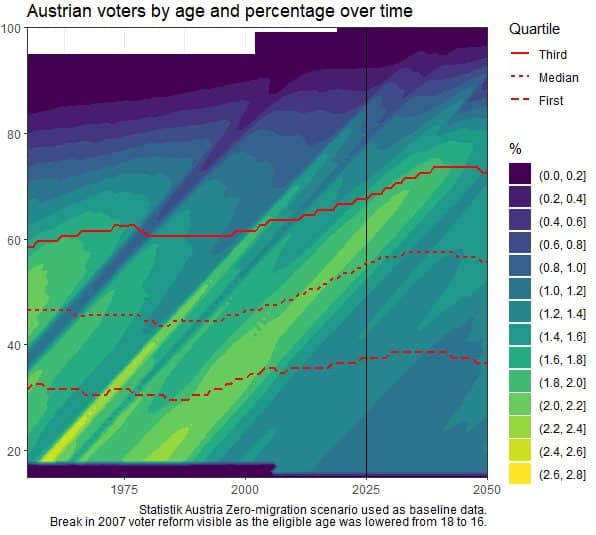Austrian voters aged 67 or older are projected to comprise one quarter of the electorate by 2025, with that figure expected to rise to 74% by 2039. This demographic shift raises concerns about the impact of aging voters on Austrian democracy, particularly regarding their awareness of party policies and performance.
Many young Austrians feel unrepresented by existing political parties. Traditional parties, including those previously appealing to students, such as green and neoliberal parties, struggle to attract younger voters due to their aging leadership. Right-wing populist parties occasionally address issues like housing and multiculturalism but have not been given the opportunity to legislate effectively. A significant number of young voters express dissatisfaction with the current political landscape, feeling that none of the available parties represent their interests.
Concerns have been raised about the potential for cognitive decline among older voters, which may affect their electoral choices. The question remains whether Austrian democracy can adapt to new global and local challenges with an electorate that may lack awareness of current issues.
As previously reported, the demographic trends in Austria reflect broader societal shifts, with implications for political representation and policy-making in the coming years.



![[Video] Gunfire between Iraqi security forces and Sadr militias in Baghdad](/_next/image?url=%2Fapi%2Fimage%2Fthumbnails%2Fthumbnail-1768343508874-4redb-thumbnail.jpg&w=3840&q=75)
